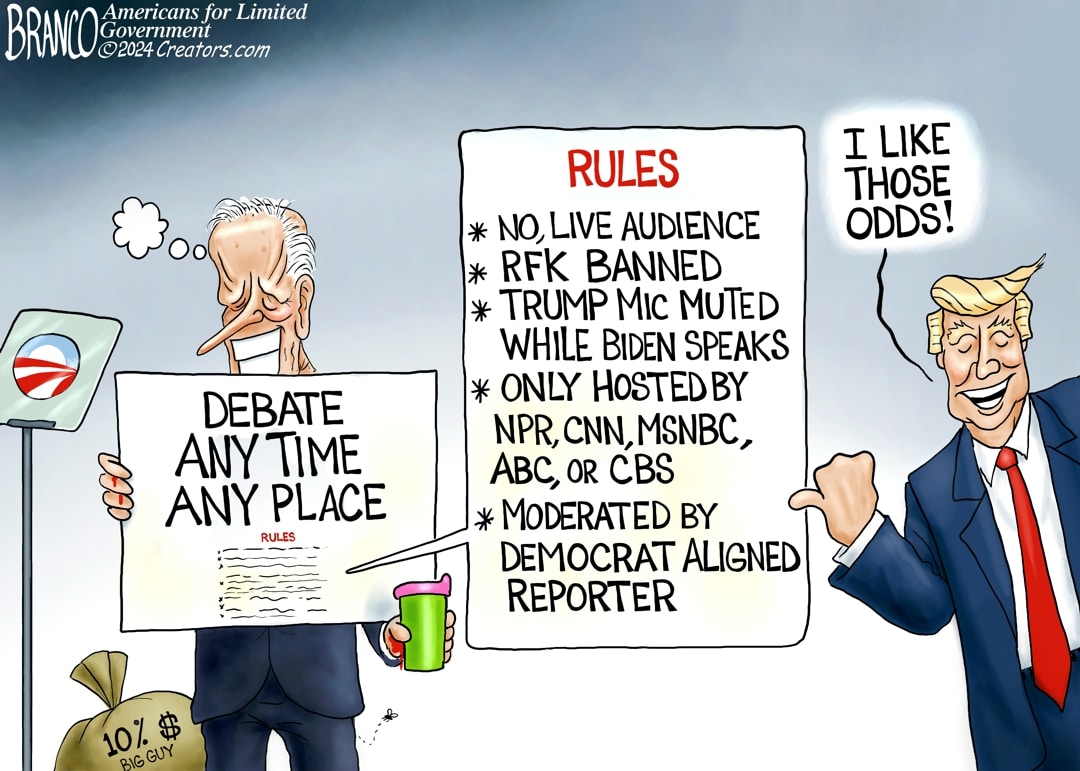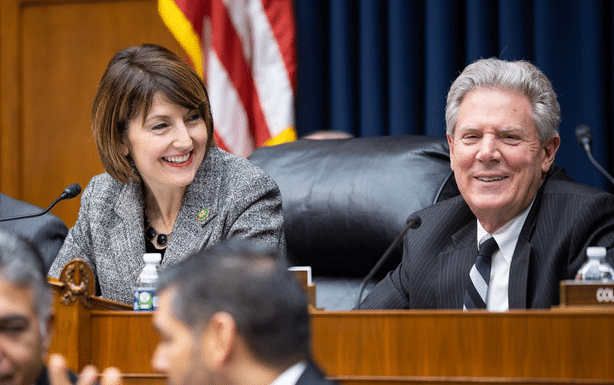May 23, 2024
Permission to republish original opeds and cartoons granted.
Congress Wants To Censor ‘Disinformation’ And ‘Indecent’ Content From The internet As Bipartisan Bill Seeks To Sunset Section 230
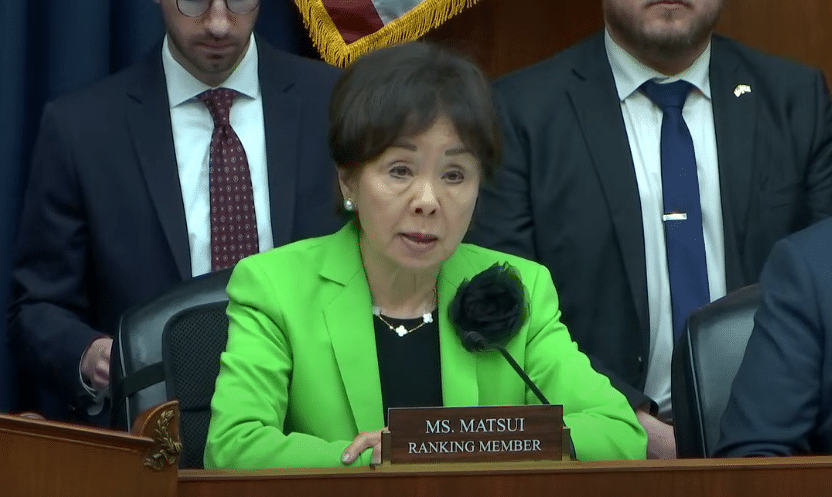
By Robert Romano
The House Energy and Commerce Subcommittee on Communications and Technology held a hearing on May 22 entitled, “Legislative Proposal to Sunset Section 230 of the Communications Decency Act” to discuss proposed draft legislation by House Energy and Commerce Committee Chair Cathy McMorris Rodgers (R-Wash.) and Ranking Member Frank Pallone, Jr. (D-N.J.), the “Section 230 Sunset Act,” that would end Section 230 of the Communications Decency Act protections on Dec. 31, 2025 for millions of interactive computer services, including websites, apps, e-commerce stores and other businesses, large and small.
Chairing the subcommittee hearing was U.S. Rep. Bob Latta (R-Ohio) who promised in his opening statement that Congress is going to “reform [Section 230] in a way that will protect innovation and promote free speech and allow Big Tech to moderate indecent and illegal content on its platforms and be accountable to the American people.”
Next up was the subcommittee’s ranking member, U.S. Rep. Doris Matsui (D-Calif.) who blasted Section 230, saying Congress needed to address “disinformation” allowed on websites: “The broad shield [Section 230] offers can serve as a haven for harmful content, disinformation and online harassment.” She included so-called “election disinformation” in that category.
In the meantime, two of the witnesses at the hearing complained about dangerous products sold on e-commerce platforms, cyberbullying, sexual extortion, people getting raped after using dating apps, self-harm content, exposure to content promoting drug use, facilitating illegal drug sales and so forth.
But the legislation under consideration does none of those things. It simply says, “This section shall have no force or effect after December 31, 2025.” No alternative is presented.
It doesn't say how free speech or innovation will be protected or how Congress intends to regulate "indecent" content or “disinformation” or prevent crimes on the internet. Instead, the goal is to create an emergency to hold millions of websites hostage that depend on Section 230 to exist to extort concessions from Big Tech, ending liability protections on Dec. 31, 2025, and we'll figure out later which protections were worth keeping.
Since the bill does not state what the new regulations will look like, the members’ opening statements warrant some serious consideration of what to expect downstream. They're telling us upfront on a bipartisan basis they want to regulate "disinformation" and "indecent" content, but they won't show us the real legislation until after they’re allowed to create the emergency threatening the entire internet ecosystem.
Section 230 applies to interactive computer services which are defined as “any information service, system, or access software provider that provides or enables computer access by multiple users to a computer server, including specifically a service or system that provides access to the Internet and such systems operated or services offered by libraries or educational institutions…”
That is, it applies to every website that offers the ability to create an account and log in. That applies to social media, yes, but also message boards, comments sections, e-commerce stores, messaging apps and so forth.
47 U.S.C. Section 230(c)(1) outlines the liability shield, stating, “No provider or user of an interactive computer service shall be treated as the publisher or speaker of any information provided by another information content provider.”
Subsections (c)(2)(a) and (c)(2)(b) form the other part of that protection, stating, “No provider or user of an interactive computer service shall be held liable on account of any action voluntarily taken in good faith to restrict access to or availability of material that the provider or user considers to be obscene, lewd, lascivious, filthy, excessively violent, harassing, or otherwise objectionable, whether or not such material is constitutionally protected any action taken to enable or make available to information content providers or others the technical means to restrict access to material described…”
Years ago, when conservatives started criticizing Section 230, it was in the vein of preventing censorship on the internet. Now we can see that the moment the issue is finally coming up on a bipartisan, the goal is clearly to facilitate more censorship by targeting “disinformation” and “indecent” content. They’re telling us upfront.
The fact is we don't know what shape the bill will ultimately take, and neither do its supporters. If they're talking about "indecent" content, it's going to include censorship. We won't find out the price being paid until after the bill passes, and that should worry everyone.
Besides the bill’s text only stating that Section 230 will sunset on Dec. 31, 2025, we also know none of the problems articulated at the hearing, the things Congress is seeking to regulate, will be addressed by the bill because the bill’s author House Energy and Commerce Committee Chair McMorris Rodgers told us so.
The goal is not to solve any problems now but to, in her words, "bring Congress and stakeholders to work in good faith to create a solution.”
But that would only occur later, without that alternative framework being made available now so that the likely consequences might be considered ahead of time. McMorris Rodgers added, “Let me be clear: Our goal is not for Section 230 to disappear but the reality is 25 bills to amend Section 230 have been introduced over the last two Congresses. Many of these were good faith attempts to reform the law, and Big Tech lobbied to kill them every time. These companies left us with no other option. By enacting this legislation, we will force Congress to act.” But to act on what?
Imagine if phone companies' similar liability shields for crimes committed using phones were suddenly threatened unless the phone companies agreed to start listening to all of your phone calls to prevent abuse, sexual assaults being set up, hits being ordered or illegal drug sales, and presumably to report crimes committed on their tele-networks. It would be an unconstitutional search!
That is what Congress is now asking not just of social media but any website with user accounts, public posts but also private messaging like dating apps, private groups, private message boards and so forth. It includes every website in America with users with the ability to log into in America. The outcome will be de facto censorship because the companies large and small could not risk the potential liability of hosting networks where crimes might be committed, or other harms could occur.
What is alarming is that years ago there were no alternatives for conservatives, now there are like X, Rumble and Truth Social. But if one looks, there are no statements yet by Elon Musk, Rumble CEO Chris Pavlovski, Truth Social CEO Devin Nunes or former President Donald Trump about this vague legislation that clearly endangers these platforms and their users’ future ability to speak out.
McMorris Rodgers is right about one thing, it is clear: The goal of the bill is to compel action in Congress on this issue on an emergency basis by threatening liability protections for millions of websites, without any way of knowing what new regulations Congress has in mind or if small businesses will ever be able to afford to comply with them.
That is extortion and the entire internet will be the hostage if this bill becomes law. Congress should say no to this strong-arm strategy, reject the obvious censorship that will come as a result of its passage and preserve the free and open internet. Members are telling us at the outset that the goal of sunsetting Section 230 is to remove “disinformation” and “indecent” content — and we should listen to them.
Robert Romano is the Vice President of Public Policy at Americans for Limited Government.
Cartoon: Ready To Rumble
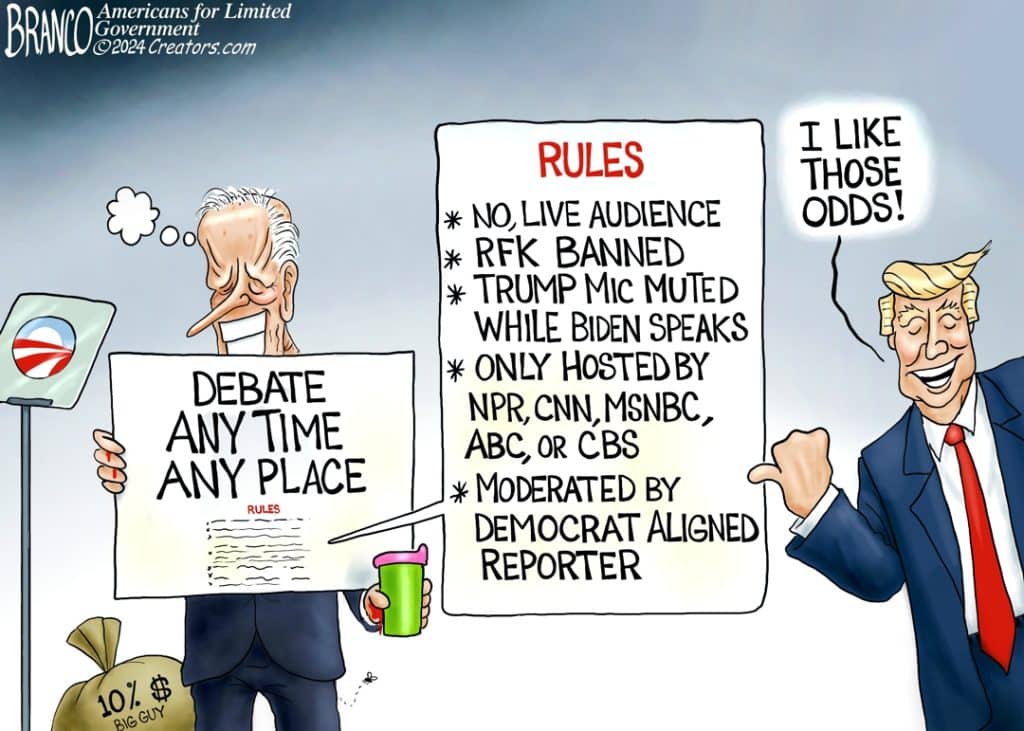
By A.F. Branco
Click here for a higher level resolution version.
To view online: https://dailytorch.com/2024/05/cartoon-ready-to-rumble/
Video: Globalist Agenda: Unveiling the Truth Behind International Warfare
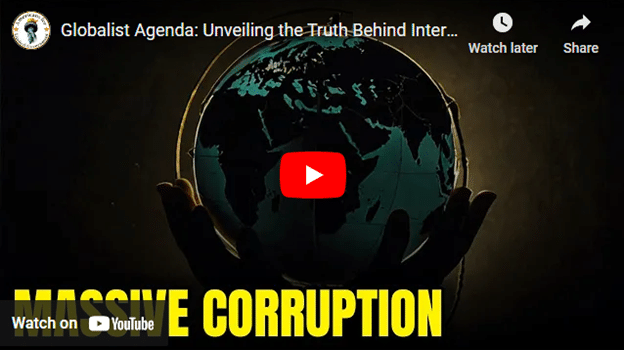
To view online: https://www.youtube.com/watch?v=rOLs9C_nepM
URGE CONGRESS NOT TO BREAK THE INTERNET AND TO STOP THE SECTION 230 SUNSET!

